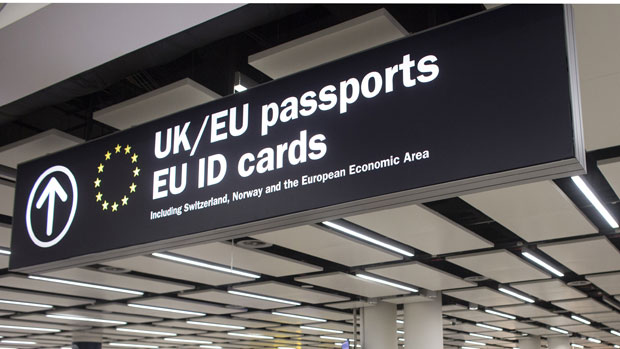'Illegal' name costs Icelandic Harriet her passport
Passport refused to ten-year-old because Icelandic girls cannot be called Harriet

A free daily email with the biggest news stories of the day – and the best features from TheWeek.com
You are now subscribed
Your newsletter sign-up was successful
A ten-year-old girl named Harriet has been denied a passport because her name does not appear on the list of approved Icelandic names.
Had her parents chosen Hjörný, Haddý, Hekla, Hrafnhildur or Hörn she would have been approved, but the name Harriet is not on the list and cannot be added to it, according to the country's strict naming laws.
"They have deprived our daughter of freedom of movement," the girl's mother, Kristín Cardew, told visir.is. "It is in violation of the United Nations' Convention on the Rights of the Child."
The Week
Escape your echo chamber. Get the facts behind the news, plus analysis from multiple perspectives.

Sign up for The Week's Free Newsletters
From our morning news briefing to a weekly Good News Newsletter, get the best of The Week delivered directly to your inbox.
From our morning news briefing to a weekly Good News Newsletter, get the best of The Week delivered directly to your inbox.
Cardew and her husband, Tristan, who was born in Britain, have four children: Lilja, Belinda, Harriet and Duncan. But Duncan and Harriet's names appear in the National Registry as /drengur/, which means boy, and /stúlka/, which means girl, because neither name has been approved by a body called the Icelandic Naming Committee.
Until now, this is also how their names have appeared in their passports. But when Cardew went to renew Harriet's passport, she was told that the document could not be issued because her daughter's name was "illegal".
Icelandic law says that unless both parents are foreign, all children born in the country must have their name submitted to the National Registry within six months of birth, The Guardian reports. If the chosen name does not appear on the official list of 1,853 female and 1,712 male names, parents must ask for approval from the Naming Committee.
Around 100 applications are received each year from parents hoping to give their child an unrecognised name. Of those, approximately half are rejected under a 1996 act which aims to preserve the Icelandic language.
A free daily email with the biggest news stories of the day – and the best features from TheWeek.com
The complexity of naming conventions in the country is that new names must be able to be conjugated so as not to "conflict with the linguistic structure of Iceland". Harriet was turned down because it could not be properly given nominative, accusative, and genitive cases, the Guardian says.
Jón Gnarr, the former mayor of Reykjavik, described the country's naming laws as "unfair, stupid [and] against creativity".